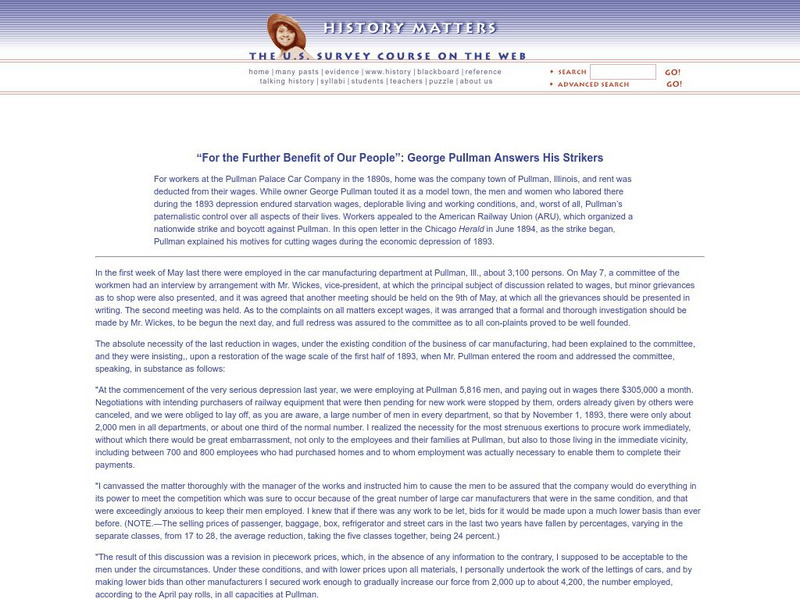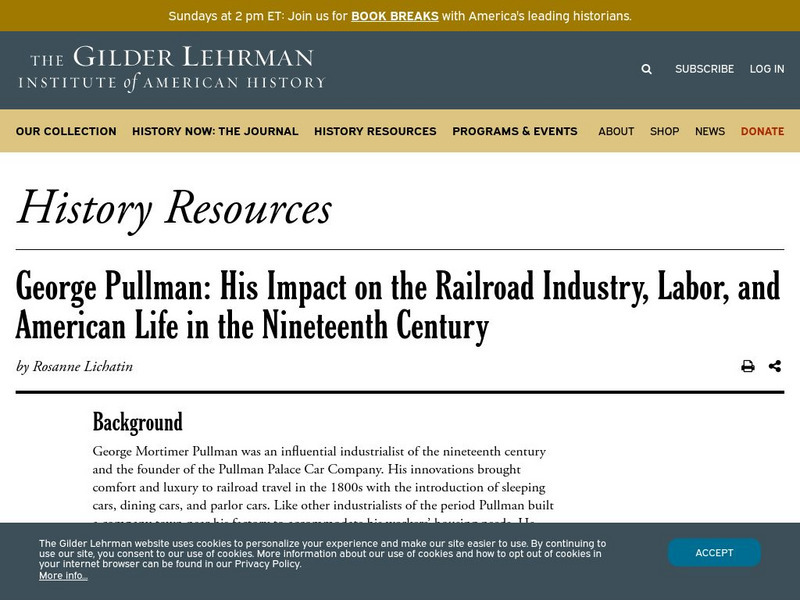Curated OER
History Matters: For the Further Benefit of Our People
After the onset of the 1893 Depression, George Pullman of the Pullman Palace Car Company found his company crumbling as employees "Appealed to the American Railway Union (ARU), which organized a nationwide strike." Read the letter he...
Chicago History Museum
Encyclopedia of Chicago: Welfare Capitalism
An interesting look at how some businesses in Chicago practiced welfare capitalism, a way to give noncash compensation to workers primarily to stave off unionization, but also to promote a loyalty to the company. Many examples are given.
Gilder Lehrman Institute of American History
Gilder Lehrman Institute: George Pullman: His Impact on Rr Industry, Labor, and American Life in 19th C.
[Free Registration/Login Required] This lesson plan seeks to discover the impact George Pullman had, not only on the railroad industry, but also on American life, by improving rail travel, and also establishing a company town for his...
Other
Kansas Heritage: Pullman Strike, Chicago, 1894
This detailed and informative site explains how the Pullman Strike, which began as a peaceful protest about rent in the company town of Pullman, spread across the country and brought railroad traffic to a halt.
Country Studies US
Country Studies: The Struggles of Labor
This site discusses how for much of the latter half of the 1800s, the life of the common laborer was horrendous. Working in a unsanitary factory, for at least 10 hours a day, making far less than needed to survive, the struggles of the...
Chicago History Museum
Chicago History Museum: George Pullman: Social Reformer
Click through four pages on this larger website about the Pullman Rail Car Company. Read about George Pullman's ideas about establishing a company town for his workers that would address their housing, recreation, and even moral needs.






